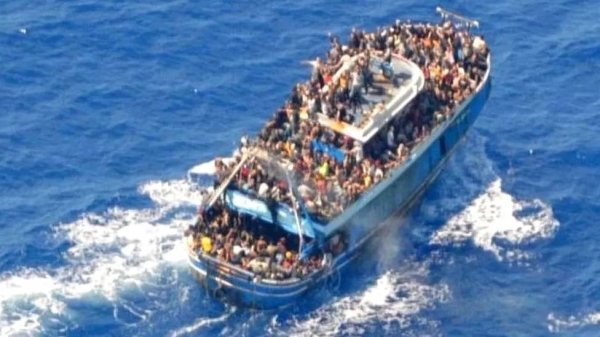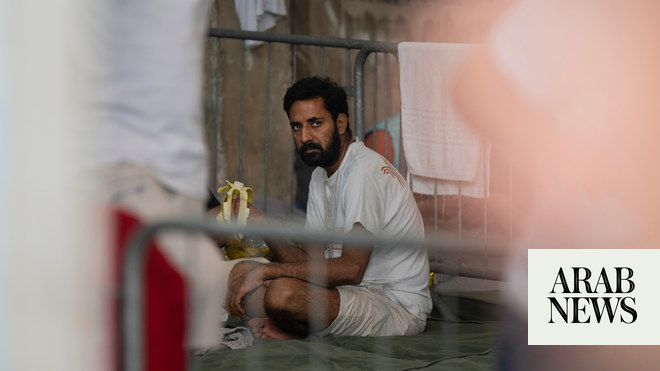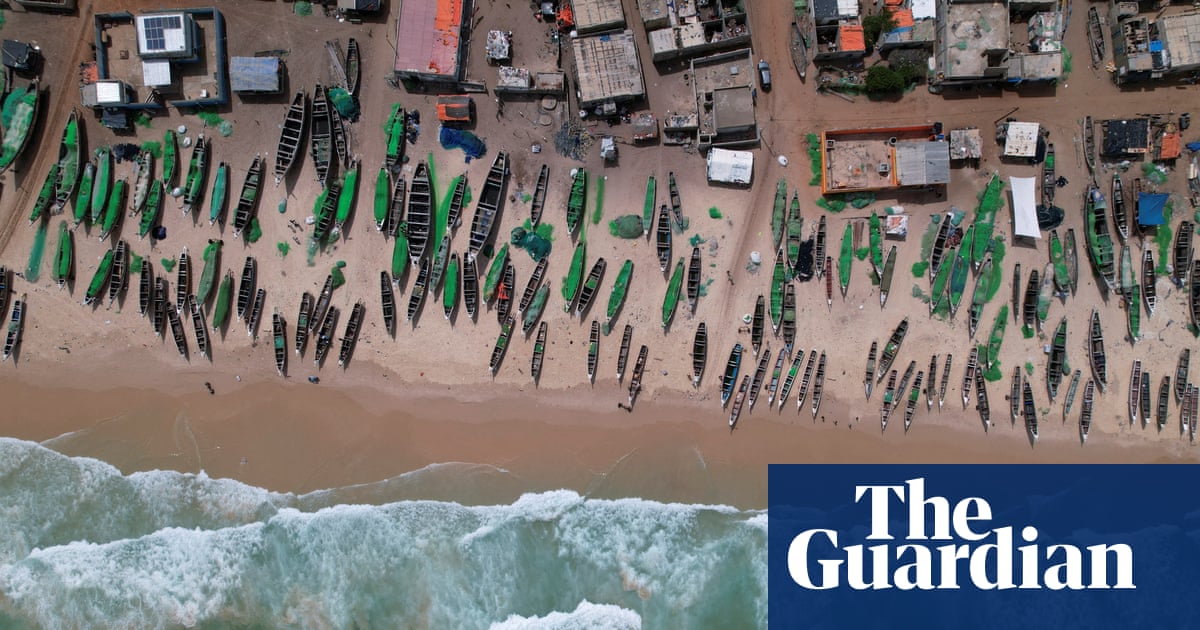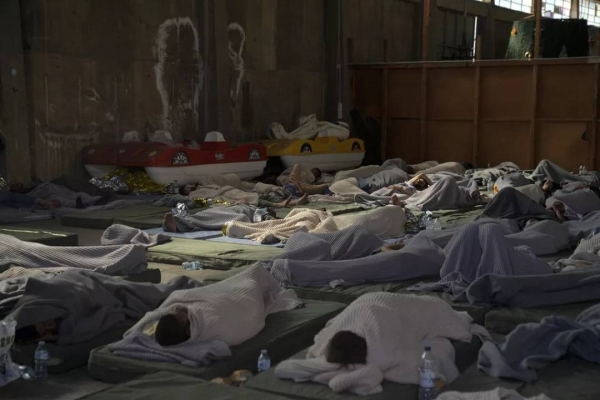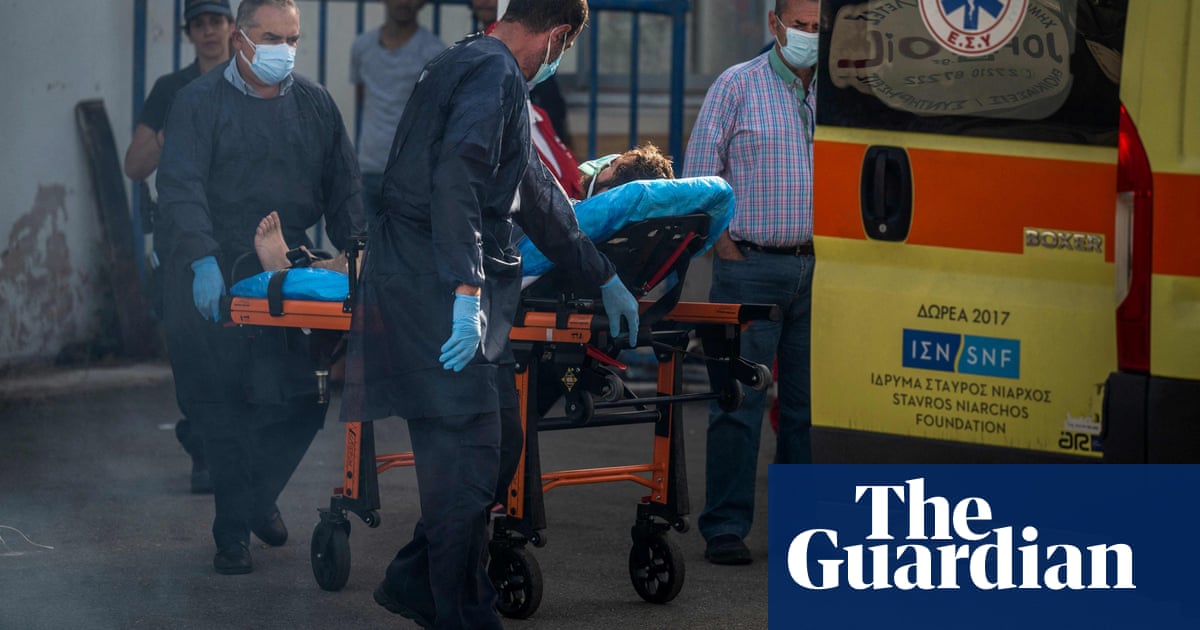
Survivors from an overcrowded fishing boat that capsized and sank on Wednesday off the Greek coast in one of the worst disasters in the Mediterranean in recent years have told doctors and police that women and children were travelling in the hold of the vessel.
Seventy-eight people have been confirmed dead, but there are fears the number of victims could run into the hundreds.
“Right now everything is guesswork but we are working on the assumption that as many as 500 are missing,” said Nicolaos Spanoudakis, a police inspector. “Women and children, it seems, were in the hold.”
Doctors at Kalamata general hospital told Greek media and the BBC that survivors said as many 100 children had been in the bottom of the ship.
It has not been possible to verify the figure, though asked by a reporter from Greece’s ANT1 channel if there were 100 children onboard, one survivor replied: “Yes.”
On Thursday night it was announced that Greek authorities had arrested nine suspected people-smugglers believed to have piloted the vessel before it sank off the southern Peloponnese.
Skai TV reported that the nine – all men – were of Egyptian descent and were suspected of masterminding the illegal voyage of hundreds of people to Italy from Egypt, from where they had set out with the trawler.
“They are in custody and will appear before a local magistrate,” Nikos Alexiou, the Hellenic coastguard spokesperson, told the Guardian. “They are being held by the coastguard in Kalamata.”
A public prosecutor is likely to press several charges against the group including that of mass murder. Local media reports said the ship’s captain was not among them and had died when the vessel went down.
Erasmia Roumana from the United Nations’ refugee agency described the disaster as “really horrific” and added that the survivors were in a very bad psychological state. “Many are in shock, they are so overwhelmed,” she told reporters in the port of Kalamata. “Many worry about the people they travelled with – families or friends.”
All 104 survivors were men aged between 16 and 40, authorities said. Most spent the night in a warehouse in the port. “They’re from Afghanistan, Pakistan, Syria and Egypt,” said Giorgos Farvas, Kalamata’s deputy mayor. “We’re talking about young men, mostly, who are in a state of huge psychological shock and exhaustion. Some fainted as they walked off the gangplanks from the vessels that brought them here.”
About 30 people were treated in hospital for pneumonia and exhaustion but were not in immediate danger, officials said, and several had been discharged.
Reports suggested up to 750 people had packed on to the fishing boat that capsized and sank early on Wednesday about 50 miles (80km) from the southern coastal town of Pylos while it was being shadowed by the Greek coastguard.
“The fishing boat was 25-30 metres long. Its deck was full of people, and we assume the interior was just as full,” a coastguard spokesperson said. A government spokesperson said smugglers were known to “lock people up to maintain control”.
Greece’s caretaker government has called three days of national mourning, with electoral campaigning ahead of polls on 25 June suspended.
Early on Thursday, a coastguard vessel sailed into Kalamata, transporting victims. After an official count, authorities revised the death toll to 78 from 79.
The coastguard said a surveillance plane from Europe’s Frontex agency had spotted the boat on Tuesday, but officials said people on the boat, which had set off from the Libyan port of Tobruk, repeatedly refused offers of help.
“It was a fishing boat packed with people who refused our assistance because they wanted to go to Italy,” the coastguard spokesperson, Nikos Alexiou, told Skai TV. “We stayed beside it in case it needed our assistance, which they had refused.”
A senior prosecutor on Thursday took over supervision of the investigation into the incident. Alexiou suggested the boat may also have capsized if the coastguard had attempted to stop it without the crew’s and passengers’ cooperation.
But Alexis Tsipras, the leftwing opposition leader, said during a visit to Kalamata port that survivors told him they had “called for help”.
He said:“What sort of protocol does not call for the rescue… of an overloaded boat about to sink?”
Tsipras, who was prime minister from 2015 to 2019 at the peak of Europe’s migration crisis, blamed the continent’s migration policy for the incident. “There are very big political responsibilities,” he said. “The immigration policy that Europe has been following for years … turns the Mediterranean, our seas, into watery graves.”
An independent refugee activist, Nawal Soufi, said on Facebook she had been in contact with people on the boat until 11pm on Tuesday. “The man I was talking to expressly told me: ‘I feel that this will be our last night alive,’” she wrote.
The boat’s engine gave up shortly before midnight UK time on Tuesday and it capsized soon afterwards, with coastguard experts saying the movement of people inside may have caused it to list and overturn. No one onboard was thought to be wearing a life jacket.
The acting Greek migration minister, Daniel Esdras, told the TV station ERT that Greece would examine survivors’ asylum claims but those not entitled to protection would be sent home.
The search operation was due to continue until at least Friday morning, according to government sources. The chances of retrieving the sunken vessel were remote, they said, because the area of international waters where the incident occurred was so deep.
“The chances of finding more people alive are minimal,” a retired Greek coastguard admiral, Nikos Spanos, told ERT. “We have seen old fishing boats like this before from Libya. They are not at all seaworthy. To put it simply, they are floating coffins.”
The deadliest migrant tragedy in Greece was in June 2016, when at least 320 people were listed as dead or missing in a sinking near Crete.




